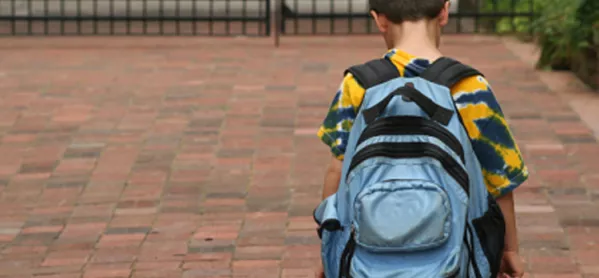- Home
- ‘Without the security and routine of school, millions of children will go hungry during the summer’
‘Without the security and routine of school, millions of children will go hungry during the summer’

At this time of year, I always have a pang of concern about what will happen to the children in my school during the holidays.
The long summer break makes me anxious about a number of things, and although pupils and staff have earned it, I worry about the effects of austerity on the families that make up my school community. I’m sure that many school leaders will share this sentiment.
The NAHT headteachers’ union’s own analysis from 2015 showed that schools were contributing around £43 million each year to help struggling families with the basics. That figure is unlikely to have decreased given that the cost of living continues to rise faster than wages.
A couple of generations ago, the traditional family model did not include two working parents. Now, it’s much less likely that one parent will be at home holding the fort while the other goes out to earn a crust. Don’t get me wrong, that’s progress. When it comes to work, we do have a more equal society than we used to. But in the summer, when school’s out, who’s looking after the kids?
The mortgage still needs to be paid, the shopping still needs to be bought and most people’s holiday entitlements won’t cover every single day of school holiday in the year. According to the Children’s Society, 67 per cent of the 4 million children living in poverty in the UK have at least one parent in work.
I worry about the impact this has on the quality of time that parents get to spend in with their kids during the holidays, especially if they are concerned about bills, or finding it difficult to get time off. Summer can be a time of enormous stress for families, particularly the ones that rely on their school for support with childcare, activities and heaven forbid, food.
Holiday hunger
Back in December last year, Jamie Oliver, a passionate campaigner on children’s diets, said: “When kids are off for their summer holidays or Easter holidays, we’re seeing patterns where kids are really getting bad nutrition. Holiday hunger is a really big issue.”
In January, a report by charity Sustain found that more than 500,000 children were struggling for food during school holidays. London Mayor Sadiq Khan launched a £1 million campaign to provide free hot meals at 330 holiday club groups in some of the poorest parts of the capital. I was struck by remarks made at the time that some parents are skipping meals themselves to feed their children.
In April, the All-Party Parliamentary Group on hunger warned that up to 3 million children risk going hungry during the school holidays. It said those at risk include more than a million children on free school meals and a further 2 million who live in poverty despite their parents working. The APPG cited evidence suggesting children who go hungry outside of term time “start the new term several weeks, if not months, intellectually behind their more fortunate peers who have enjoyed a more wholesome diet and lots of activity”.
Kids aren’t just going hungry for food in the summer. Despite their families’ best efforts, they can be starved of mental and physical stimulation, too.
During term time, there are all sorts of other experiences that schools provide for young people at low or zero cost to parents that just aren’t available in the holidays. This forces families to dig even deeper into their pockets during the holidays, with financial commitments to activities running to hundreds of pounds in many cases.
The APPG’s answer was to suggest compelling schools and other local venues to open up in the holidays to continue to offer clubs, activities and food.
While I don’t think this is the answer, it does highlight two things very clearly. Firstly, cuts to local authority budgets now mean that the support they can offer families in the holidays is inadequate. And secondly, it shows just how much impact schools have on every aspect of a young person’s life.
A massive part of my work as NAHT’s president this year is to draw attention to the need for schools to continue to have enough funding to offer arts, music, sports and other activities, alongside academic subjects. We also need recognition that test and exam results are only part of the picture when judging a school’s effectiveness.
The breadth and depth of experiences that schools provide is something that we will lose if funding is not adequate. And society will be all the poorer for it in the future.
While MPs are enjoying their long summer break, I hope they’ll spare a thought for the families who are just holding on until the kids go back in September.
Anne Lyons is the president of the NAHT. She tweets at @Anne_M_Lyons.
Want to keep up with the latest education news and opinion? Follow Tes on Twitter and like Tes on Facebook.
Keep reading for just £1 per month
You've reached your limit of free articles this month. Subscribe for £1 per month for three months and get:
- Unlimited access to all Tes magazine content
- Exclusive subscriber-only stories
- Award-winning email newsletters
